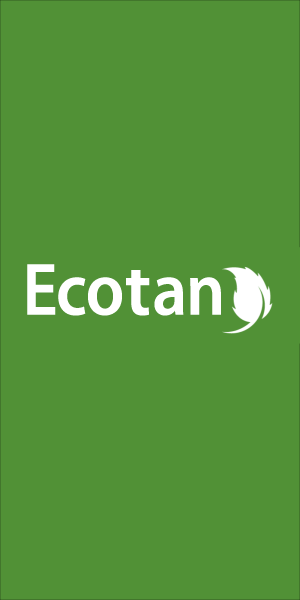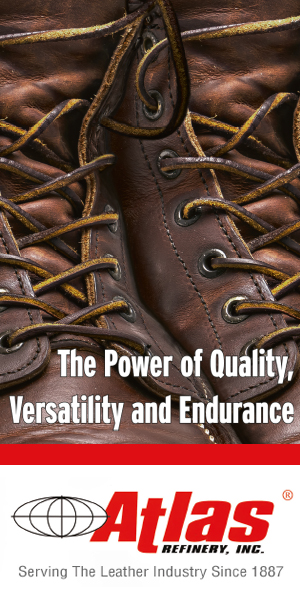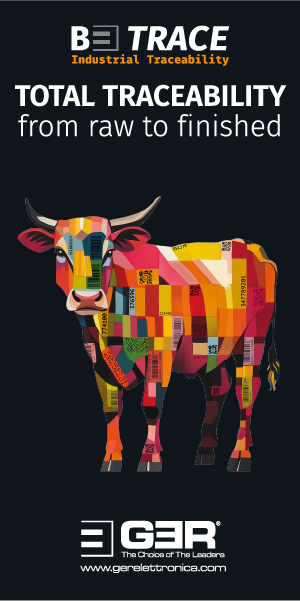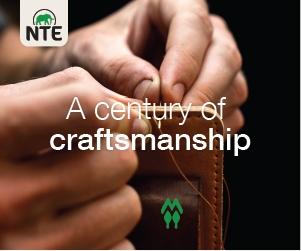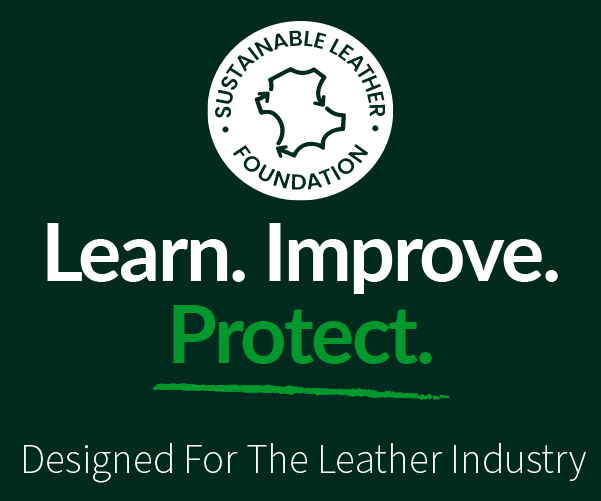Rich heritage

Millau’s leather and glove manufacturers are at the heart of an ongoing effort to win UNESCO Intangible Cultural Heritage status. The aim of the team behind this ambitious project is to celebrate and preserve the centuries of skill-sharing and traditions that have gone into making Millau a world-renowned centre of gloving excellence, with spin-off socio-economic benefits for partners in France and overseas.
The leather and glove industry in and around Millau, in the French department of Aveyron, is moving forward with an ambitious bid to gain formal inclusion on the Lists of Intangible Cultural Heritage that the United Nations Educational, Scientific and Cultural Organization (UNESCO) established in 2008.
From the beginning, this programme set out to give recognition to the enormous range of arts, oral traditions, crafts, festivals, skills, knowledge and practices that comprise the intangible cultural heritage of humanity. A United Nations convention in 2003 called for the lists to be drawn up with a view to ensuring respect for the cultural heritage of communities, groups and individuals around the world, and to raise awareness locally, nationally and internationally of the importance of a community’s intangible cultural heritage.
It wanted peoples around the globe to learn more about each other’s patrimony to generate mutual appreciation, international cooperation and assistance. It also wanted to identify aspects of our cultural heritage that are in need of safeguarding in a bid to help secure their survival. There are hundreds of examples; recent additions include the skill involved in weaving date palms in more than a dozen countries in the Middle East and Africa, and the reggae music of Jamaica.
France has been an enthusiastic participant in the programme since the start and a number of local and national traditions have already made it onto the list. When the culture and heritage that the region around the town Grasse has in creating perfumes was in the process of winning its inclusion on the list (which it achieved in 2018), senior figures in the leather and glove manufacturing sector in Aveyron took notice. If the intangible cultural heritage of Grasse, which includes knowledge of which plants and flowers are of greatest value to the perfume industry and the skill required to cultivate those plants could be on the list, perhaps the value chain of the glove manufacturers in and around the town of Millau was equally worthy of inclusion.
Important visit
This was the question that Olivier Fabre, master glove-maker, fourth-generation managing director of Maison Fabre and president of the local leather industry body, the Pôle Cuir Aveyron, began to discuss with his colleagues in 2015 after Daniel Janicot, head of France’s national UNESCO commission, paid a visit to Millau. Mr Fabre took him to see a relatively new but already famous viaduct a few kilometres from the town. It was the UNESCO commissioner who suggested that the intangible cultural heritage that was clearly in evidence in Millau, centring on the leather and glove sector, might be worth examining as a candidate project for the list. Olivier Fabre followed up with meetings at France’s ministry of culture and received the encouragement he needed to start work, with his colleagues, on a formal dossier that will make the case for adding Millau’s glove industry to the list. In the end, this dossier will be around 800 pages long. In addition, the candidacy will have its own official film thanks to young people in the local community using their smartphones to capture short testimonies from 100 local characters who work across the leather and gloving supply chain, inviting them to record a message of support for the bid. Work on all of this continues; the project team aims to submit its case in December and hopes to receive UNESCO’s decision in March 2022.
Eco-tourist route
There is talk, with officials from the local tourism office, of setting up a ‘Route des Gantiers’, a ‘glovers’ route’, taking “eco-tourists” to see where the sheep are raised, to meet the shepherds and, then, to continue to a tannery and a glove-manufacturing workshop. “We’re working on this already,” Olivier Fabre says, “and it may be possible for us to launch it in 2021.” Other plans include a conference about the candidature at one of the gems of French artisanship, the Gobelins tapestry factory in Paris (now an exhibition space), in, perhaps, April 2021. If all goes to plan, a second edition of the conference could run in Millau in October next year.
Even in the immediate aftermath of covid-19, there are ideas that can come into effect sooner than that. “We want to celebrate the feast of Saint Anne, the patron saint of glove-makers, on July 26 this year,” Mr Fabre says. He explains that this was, in the past, an important date on Millau’s calendar and that the project team has identified easy-to-organise events for Saint Anne’s Day this year that, it hopes, could spark a revival. The date falls on a Sunday and morning Mass at one of the town’s churches, Sacré-Couer, will mark the feast. The team has also been in discussion with local bakers to encourage them to reserve some of the space in their ovens that morning for baking a local artisan delicacy, a sweet pastry called the ‘fouace aveyronnaise’.
Later, there will be a guided tour of another of the town’s churches, l’Église Notre-Dame de L’Espinasse, significant, Olivier Fabre explains, because twentieth-century artist and polymath Jean Bernard painted a series of murals covering 600 square-metres on the walls of the church in 1938. The artist included scenes that depict the Millau glove supply chain perfectly: a shepherd carrying a sheep, a skinner, a glovemaker and a pair of finished gloves. At the end of the tour, the feast day will conclude with an organ recital. “It will be just a small event,” Mr Fabre says, “owing to the complicated situation we find ourselves in.”
Whole value chain
Reflecting Jean Bernard’s depiction of the area’s cultural heritage, the UNESCO bid encompasses the whole of the value chain, starting with the shepherds who raise the Lacaune sheep in this region to supply the milk that makes Roquefort cheese. The current Lacaune sheep population here is 1.2 million head and, of course, this agropastoral activity generates by-products. Shepherds are part of the project team for the UNESCO bid. So are people who use the by-products: collectors and sellers of the wool and those who make leather from sheepskins and lambskins. In France, there is, admirably, a specific word for small-skin tanneries; they are called megisseries, from a little-used verb that means ‘to take care of’. For centuries, there have been skilled people on stand-by to take care of the skins that sheep-rearing generates and there still are today.
Finally, the team also has representatives of the craftspeople who make use of the finished leather to make glorious gloves and other products. “There is nowhere else in the world where you can find all the links in the value chain so closely bound together in such a concentrated area,” Mr Fabre says. “It’s unique in the world. Other communities, including Saint Junien (near Limoges) and Grenoble in France and others in Italy have strong glove-making traditions, but no one else has what we have. This is our intangible cultural heritage.” Nevertheless, if the Millau UNESCO bid is successful, Mr Fabre insists that will also help those other glove-making communities in other parts of France and internationally.
Benefits at home and abroad
The Lacaune skins aside, a substantial quantity of raw material comes to Aveyron’s small-skin tanners from Ethiopia. This, Mr Fabre explains, means it makes sense to present a joint-candidature reflecting this French-Ethiopian partnership. He talks of this leading in the near future to the setting up of a new UNESCO university chair dedicated to animal welfare, with, ideally, universities in Toulouse and Addis Ababa sharing the chair. “Our partners in Ethiopia are very interested in working on this with us,” Mr Fabre says. “This is good because a bi-national carries more weight and it adds a north-south development aspect to what we are doing.”
Returning to France, the bid also has an important social dimension. There is the intention to visit local schools to give talks to students about the heritage they have in front of them and the industry also hopes to build connections that will help it build up its workforce. Working with specialist non-profit organisations, operators in Millau believe they will be able to offer employment to vulnerable people who are rebuilding their lives, people who are out of work, migrants who have recently arrived and seek to become integrated into the local economy and local society. Companies in Millau can pass on sewing skills and other aspects of glove manufacturing craftsmanship to these people. This would help stall and perhaps even reverse a talent drain that has been taking place for some time.








